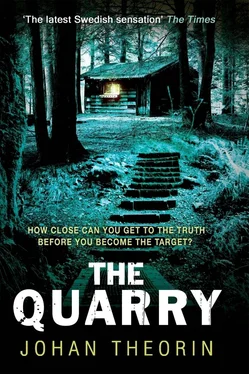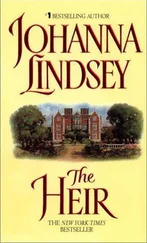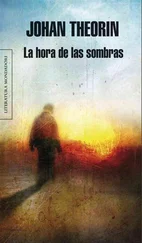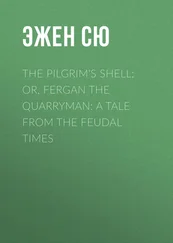Then she looked up at the house, at the middle window upstairs, and for a moment she expected to see two staring eyes up there. A face behind the glass, a raised hand and a low laugh.
Come up and see me, Vendela .
But the room behind the glass was dark and empty.
When the elves have made fru Jansson so ill that she is unable to work for the remainder of the school year, the supply teacher, fröken Ernstam, is allowed to stay with the class. Vendela likes her very much, and so do the rest of the pupils. She comes from Kalmar and has new ideas about teaching. She seems young and modern ; sometimes she leaves her desk and walks around the classroom, and she refuses to play the pedal organ.
A week after she has taken over the class, fröken Ernstam tells the class that they will be going on a spring trip to Borgholm next Friday; they will be visiting the harbour and the castle, but they will also have the opportunity to spend some time in the shops around the square. The trip will be a kind of encouragement, a treat before they begin preparing for the important end-of-year exams.
A buzz of anticipation runs through the classroom, but Vendela remains silent.
She can’t go, of course. The cows have to be taken care of, and besides, everyone has to take two kronor for their train fare. It’s not exactly a fortune, but she hasn’t got it, and she has no intention of asking her father for extra money. She knows he hasn’t got any, he’s said so several times.
But within a week the issue of money for the trip is sorted out; on Tuesday she is able to borrow two fifty-öre pieces from her best friend Dagmar, and on Thursday — yet another miracle — she is walking home past Marnäs church when she suddenly spots a shiny two-kronor coin that someone has dropped on the gravel. So now she has enough money for the trip, and some to spare.
There is only one more problem: Rosa, Rosa and Rosa.
With the coins in her hand, she stops by the elf stone. She stands there, looking at the hollows in the stone.
They are empty, of course.
Vendela places a fifty-öre coin in one of the hollows and wishes that she might be spared the job of leading the cows home and milking them the next day. One day off a year — that’s not too much to ask, surely?
She stays by the stone for a little while, gazing at the coin. Afterwards she can’t remember what she was thinking about — maybe she wished for something else.
A better life, perhaps? Did she wish that she could get away from the farm, away from her father and the Invalid upstairs, away from the island? That she could escape to another world where she would have no duties, and where money wouldn’t be a problem?
Vendela can’t remember. She leaves the coin in the hollow and sets off across the grass without looking back.
She goes out to the meadow when she gets home, and the cows lift their heads when they see her. Rosa, Rosa and Rosa form a line and begin lumbering towards the gate, and Vendela lifts her stick. But she doesn’t hit them today; her head is full of thoughts. She walks behind the cows, wondering how her wish will be granted.
That night she is woken by the sound of the cows bellowing in the darkness. They sound terrified, and a strange crackling noise is mingled with their cries.
Vendela sits up in bed; she can smell smoke. Through the blind she can see a flickering glow outside. A yellow light around the barn that just keeps on growing, making the rest of the yard melt into one with the dark forest. She hears feet thundering up the stairs, and a shout: ‘The barn’s on fire!’
It’s Henry’s voice. She hears his steps crossing the floor, then the door is flung open. ‘It’s on fire! Get out!’
Vendela gets out of bed, and Henry pulls and drags and carries her down the stairs and out into the cold night air. She ends up on the wet grass, looking around in confusion; that is when she sees that the barn is ablaze. The flames are forcing their way out through the walls, sending sparks whirling up into the night sky. The fire has already begun to lick at the gables.
Henry is standing over her, barefoot and wearing only his nightshirt. He turns away. ‘I have to go and get Jan-Erik!’
He rushes back into the house.
‘Jan-Erik?’
No reply.
The cows are still bellowing, louder and more long-drawn-out than she has ever heard — they can’t get out.
The flames writhe across the ground, scrambling up the barn and colliding with each other beneath the roof like red breakers, and Vendela feels as if her legs are paralysed. She can’t move. She sits there on the grass watching her father emerging from the house with a big bundle of blankets in his arms.
Henry drops the bundle on the grass.
Vendela can hear the sound of wheezing. Two arms push the blankets aside, a face with white eyes appears, blinking, then a mouth with white teeth smiles at her.
The Invalid is sitting there on the grass, just a metre away from her. They sit and stare at one another, and all they can hear is the sound of creaking and cracking as the roof of the barn begins to collapse.
In the glow of the fire Vendela can see that the Invalid is not old at all. The Invalid is just a boy, perhaps five or six years older than she is. His legs are long and thin.
But he is sick. Vendela can hear that he has thick phlegm in his windpipe, and there is something wrong with his skin; his face is red and swollen even when the glow of the fire is not illuminating it, and he has long, bloody scratches on his cheeks and forehead, as if an animal has attacked him. The upper part of his body is also red and covered in sores. But he’s still smiling.
Between two and three years — that’s how long the Invalid has been living on the farm without Vendela knowing who he is. Can he talk? Does he understand Swedish?
‘What’s your name?’
He opens his mouth and laughs, but doesn’t answer.
‘My name’s Vendela. What’s yours?’
‘Jan-Erik,’ he says eventually, but his voice is so quiet and muted that she can barely hear it through the fire. He carries on laughing.
‘Who are you?’
‘Jan-Erik.’
Henry is still running around the yard, sometimes clearly visible in front of the flames, sometimes completely invisible in the darkness. When the fire reaches out and grabs hold of the gables of the house, he pumps a bucket full of water and goes upstairs to damp down the wood and beat out any sparks.
Vendela’s paralysis eases, and she begins to move. She does just one thing right tonight: she goes over to the hens’ enclosure next to the barn and opens the rickety gate. The hens and chickens come flapping into the yard, tumbling over one another, followed by the cockerel. They gather in a dense huddle in the darkness, out of danger.
‘Ring the fire brigade!’ shouts Henry.
Vendela dashes into the kitchen and rings the fire brigade in Borgholm. She is put through to Kalmar, and it takes a long time to reach someone and explain where the fire is.
When she comes back outside, the Invalid is still sitting on the grass, and Henry is still running back and forth between the barn and the water pump.
But it’s all too late. The fire is roaring through the loft and across the walls along the animals’ stalls, and in the end Henry slows down. He takes a deep breath, one long, heavy sigh.
Vendela can only stand outside and listen as the bellowing from inside falls silent.
Cooked meat: the night is filled with the smell of charred beef.
Vendela can feel the heat of the fire, but she is still freezing cold. She doesn’t want to stay out here.
‘Father... are you coming inside?’
He doesn’t seem to hear her at first, then he shakes his head and answers quietly. ‘It’s not the fire’s fault.’
Читать дальше












